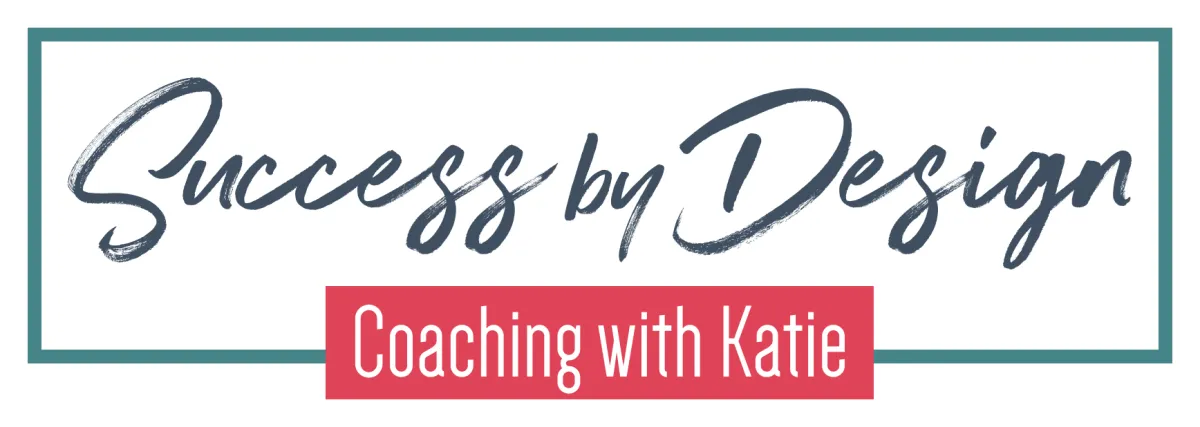
Welcome to
Success by Design - Mastering the Business of Interior Design
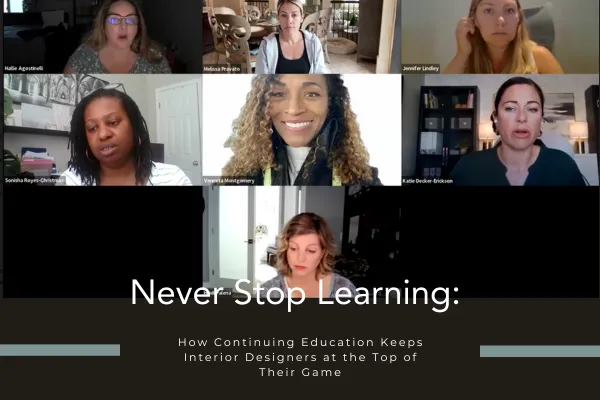
Never Stop Learning: How Continuing Education Keeps Interior Designers at the Top of Their Game
Never Stop Learning: How Continuing Education Keeps Interior Designers at the Top of Their Game
In the exciting world of interior design, one thing's for sure: the adventure of learning and growing never takes a break! Whether you are just starting your career or are a seasoned professional with years of experience, continuing education is crucial. It not only enhances your skills and knowledge but also adds significant value to your firm and, most importantly, to your clients. In fact, we were just chatting with Jenny Cano, Executive Director or IDS about this in our most recent podcast!

Lifelong Learning: A Cornerstone of Success
As an interior designer, staying updated with the latest trends, technologies, and methodologies is vital. The design landscape is constantly shifting, influenced by advancements in technology, changing client preferences, and new sustainability practices. By committing to lifelong learning, you ensure that your designs remain relevant, innovative, and impactful.
Continuing education allows you to:
Stay Ahead of Trends: The design world is dynamic, with trends evolving rapidly. Continuing education helps you keep abreast of these changes, ensuring that your designs are contemporary and competitive.
Enhance Technical Skills: With the advent of new software and tools, refining your technical skills is essential. Learning to leverage these tools can lead to more efficient processes and more accurate designs.
Expand Knowledge Base: Understanding new materials, sustainability practices, and construction techniques can significantly improve the quality and durability of your designs.
Improve Client Relationships: Educated designers can better explain and justify their choices to clients, leading to greater trust and satisfaction.
Benefits for Your Firm

For interior design firms, having a team committed to continuous learning is invaluable. It fosters a culture of innovation and excellence, where team members are always eager to bring fresh ideas and solutions to the table. This culture can:
Boost Team Morale: Employees who feel they are growing and developing are generally more satisfied and motivated.
Increase Competitiveness: Firms that invest in education are more likely to stay ahead of competitors, offering cutting-edge designs and solutions.
Enhance Reputation: Clients are more likely to trust and seek out firms known for their commitment to professional development and excellence.
Delivering More Value to Clients

Clients today are more informed and have higher expectations. They seek designs that are not only aesthetically pleasing but also functional, sustainable, and innovative. By continually expanding your knowledge and skills, you can offer:
Innovative Solutions: With a broader understanding of design principles and practices, you can provide creative solutions that address clients’ unique needs.
Sustainability: Educated designers can integrate sustainable practices more effectively, meeting the growing demand for environmentally friendly designs.
Higher Quality Work: Ongoing education ensures that your work meets the highest standards, resulting in greater client satisfaction and loyalty.
Recommended Organizations for Continuing Education
There are numerous organizations dedicated to the ongoing education and certification of interior designers. Some of the most respected include:
ASID (American Society of Interior Designers): Offers various courses and resources to keep designers informed about the latest industry trends and practices.
IDS (Interior Design Society): Focuses on residential interior design, providing valuable resources and networking opportunities.
AIA (American Institute of Architecture): While primarily for architects, AIA offers valuable insights and educational resources relevant to interior designers.
CIDQ (National Council for Interior Design Qualification): Provides certification and continuing education to ensure designers meet industry standards.
IIDA (International Interior Design Association): Specializes in commercial interior design, offering courses and certifications to enhance professional skills.
NKBA (National Kitchen and Bath Association): Focuses on kitchen and bath design, providing specialized training and certification.
Not sure which one to join and if you would even qualify? We have you covered! Check out our "Continuing Education for Interior Designers: How to Get Involved and Qualifications" resource to help guide your path. Let's help you discover which one is a great fit for you and your firm!
Embrace the Journey

In conclusion, the path of continuing education in interior design is one of perpetual growth and improvement. It benefits not only you as a designer but also your firm and your clients. By committing to ongoing learning, you stay ahead of industry trends, enhance your technical skills, and provide the highest quality service to your clients. Whether you are just starting out or have been in the field for decades, there is always something new to learn and explore.

I'm your host, Katie Erickson
I’m a commercial exterior and interior designer with an MBA and nearly 20 years in the industry. When I’m not leading my coast-to-coast, multi-million dollar firm, I love sharing real talk on the business of design, blending insights from 20 years as a business professor. I keep it honest—balancing work and chasing my two girls around.

Never Stop Learning: How Continuing Education Keeps Interior Designers at the Top of Their Game
Never Stop Learning: How Continuing Education Keeps Interior Designers at the Top of Their Game
In the exciting world of interior design, one thing's for sure: the adventure of learning and growing never takes a break! Whether you are just starting your career or are a seasoned professional with years of experience, continuing education is crucial. It not only enhances your skills and knowledge but also adds significant value to your firm and, most importantly, to your clients. In fact, we were just chatting with Jenny Cano, Executive Director or IDS about this in our most recent podcast!

Lifelong Learning: A Cornerstone of Success
As an interior designer, staying updated with the latest trends, technologies, and methodologies is vital. The design landscape is constantly shifting, influenced by advancements in technology, changing client preferences, and new sustainability practices. By committing to lifelong learning, you ensure that your designs remain relevant, innovative, and impactful.
Continuing education allows you to:
Stay Ahead of Trends: The design world is dynamic, with trends evolving rapidly. Continuing education helps you keep abreast of these changes, ensuring that your designs are contemporary and competitive.
Enhance Technical Skills: With the advent of new software and tools, refining your technical skills is essential. Learning to leverage these tools can lead to more efficient processes and more accurate designs.
Expand Knowledge Base: Understanding new materials, sustainability practices, and construction techniques can significantly improve the quality and durability of your designs.
Improve Client Relationships: Educated designers can better explain and justify their choices to clients, leading to greater trust and satisfaction.
Benefits for Your Firm

For interior design firms, having a team committed to continuous learning is invaluable. It fosters a culture of innovation and excellence, where team members are always eager to bring fresh ideas and solutions to the table. This culture can:
Boost Team Morale: Employees who feel they are growing and developing are generally more satisfied and motivated.
Increase Competitiveness: Firms that invest in education are more likely to stay ahead of competitors, offering cutting-edge designs and solutions.
Enhance Reputation: Clients are more likely to trust and seek out firms known for their commitment to professional development and excellence.
Delivering More Value to Clients

Clients today are more informed and have higher expectations. They seek designs that are not only aesthetically pleasing but also functional, sustainable, and innovative. By continually expanding your knowledge and skills, you can offer:
Innovative Solutions: With a broader understanding of design principles and practices, you can provide creative solutions that address clients’ unique needs.
Sustainability: Educated designers can integrate sustainable practices more effectively, meeting the growing demand for environmentally friendly designs.
Higher Quality Work: Ongoing education ensures that your work meets the highest standards, resulting in greater client satisfaction and loyalty.
Recommended Organizations for Continuing Education
There are numerous organizations dedicated to the ongoing education and certification of interior designers. Some of the most respected include:
ASID (American Society of Interior Designers): Offers various courses and resources to keep designers informed about the latest industry trends and practices.
IDS (Interior Design Society): Focuses on residential interior design, providing valuable resources and networking opportunities.
AIA (American Institute of Architecture): While primarily for architects, AIA offers valuable insights and educational resources relevant to interior designers.
CIDQ (National Council for Interior Design Qualification): Provides certification and continuing education to ensure designers meet industry standards.
IIDA (International Interior Design Association): Specializes in commercial interior design, offering courses and certifications to enhance professional skills.
NKBA (National Kitchen and Bath Association): Focuses on kitchen and bath design, providing specialized training and certification.
Not sure which one to join and if you would even qualify? We have you covered! Check out our "Continuing Education for Interior Designers: How to Get Involved and Qualifications" resource to help guide your path. Let's help you discover which one is a great fit for you and your firm!
Embrace the Journey

In conclusion, the path of continuing education in interior design is one of perpetual growth and improvement. It benefits not only you as a designer but also your firm and your clients. By committing to ongoing learning, you stay ahead of industry trends, enhance your technical skills, and provide the highest quality service to your clients. Whether you are just starting out or have been in the field for decades, there is always something new to learn and explore.
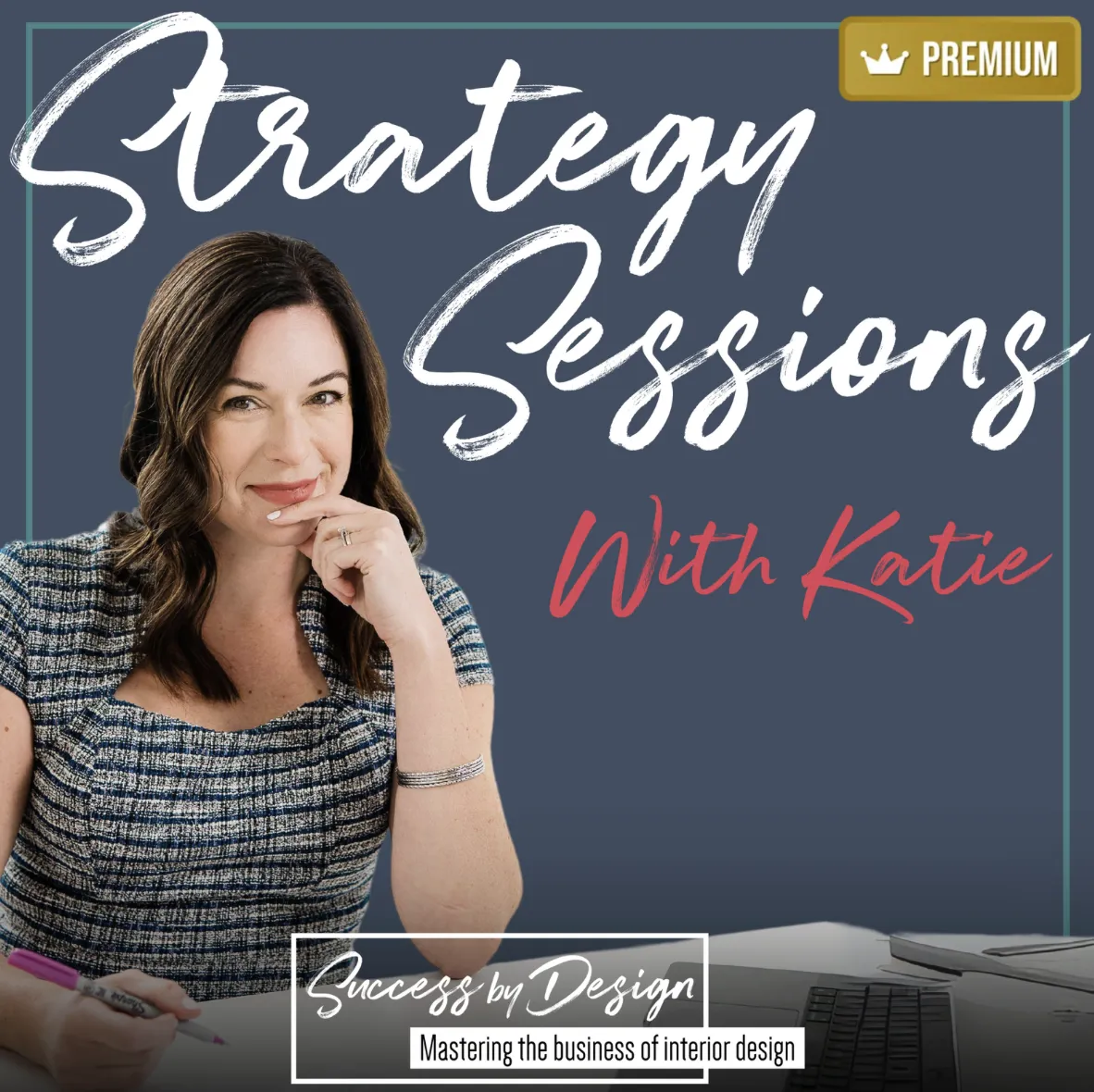
Want More Actionable Insight?
We’re excited to offer even more access to Katie Decker-Erickson! With Katie's new premium channel, you’ll enjoy ad-free episodes of Success by Design and exclusive Strategy Sessions that dive deeper into actionable insights for growing your interior design business. Subscribe now to get fresh, uninterrupted content every week—and enjoy two free months with an annual subscription!
Interested In Sponsoring The Podcast?

Never Stop Learning: How Continuing Education Keeps Interior Designers at the Top of Their Game
Never Stop Learning: How Continuing Education Keeps Interior Designers at the Top of Their Game
In the exciting world of interior design, one thing's for sure: the adventure of learning and growing never takes a break! Whether you are just starting your career or are a seasoned professional with years of experience, continuing education is crucial. It not only enhances your skills and knowledge but also adds significant value to your firm and, most importantly, to your clients. In fact, we were just chatting with Jenny Cano, Executive Director or IDS about this in our most recent podcast!

Lifelong Learning: A Cornerstone of Success
As an interior designer, staying updated with the latest trends, technologies, and methodologies is vital. The design landscape is constantly shifting, influenced by advancements in technology, changing client preferences, and new sustainability practices. By committing to lifelong learning, you ensure that your designs remain relevant, innovative, and impactful.
Continuing education allows you to:
Stay Ahead of Trends: The design world is dynamic, with trends evolving rapidly. Continuing education helps you keep abreast of these changes, ensuring that your designs are contemporary and competitive.
Enhance Technical Skills: With the advent of new software and tools, refining your technical skills is essential. Learning to leverage these tools can lead to more efficient processes and more accurate designs.
Expand Knowledge Base: Understanding new materials, sustainability practices, and construction techniques can significantly improve the quality and durability of your designs.
Improve Client Relationships: Educated designers can better explain and justify their choices to clients, leading to greater trust and satisfaction.
Benefits for Your Firm

For interior design firms, having a team committed to continuous learning is invaluable. It fosters a culture of innovation and excellence, where team members are always eager to bring fresh ideas and solutions to the table. This culture can:
Boost Team Morale: Employees who feel they are growing and developing are generally more satisfied and motivated.
Increase Competitiveness: Firms that invest in education are more likely to stay ahead of competitors, offering cutting-edge designs and solutions.
Enhance Reputation: Clients are more likely to trust and seek out firms known for their commitment to professional development and excellence.
Delivering More Value to Clients

Clients today are more informed and have higher expectations. They seek designs that are not only aesthetically pleasing but also functional, sustainable, and innovative. By continually expanding your knowledge and skills, you can offer:
Innovative Solutions: With a broader understanding of design principles and practices, you can provide creative solutions that address clients’ unique needs.
Sustainability: Educated designers can integrate sustainable practices more effectively, meeting the growing demand for environmentally friendly designs.
Higher Quality Work: Ongoing education ensures that your work meets the highest standards, resulting in greater client satisfaction and loyalty.
Recommended Organizations for Continuing Education
There are numerous organizations dedicated to the ongoing education and certification of interior designers. Some of the most respected include:
ASID (American Society of Interior Designers): Offers various courses and resources to keep designers informed about the latest industry trends and practices.
IDS (Interior Design Society): Focuses on residential interior design, providing valuable resources and networking opportunities.
AIA (American Institute of Architecture): While primarily for architects, AIA offers valuable insights and educational resources relevant to interior designers.
CIDQ (National Council for Interior Design Qualification): Provides certification and continuing education to ensure designers meet industry standards.
IIDA (International Interior Design Association): Specializes in commercial interior design, offering courses and certifications to enhance professional skills.
NKBA (National Kitchen and Bath Association): Focuses on kitchen and bath design, providing specialized training and certification.
Not sure which one to join and if you would even qualify? We have you covered! Check out our "Continuing Education for Interior Designers: How to Get Involved and Qualifications" resource to help guide your path. Let's help you discover which one is a great fit for you and your firm!
Embrace the Journey

In conclusion, the path of continuing education in interior design is one of perpetual growth and improvement. It benefits not only you as a designer but also your firm and your clients. By committing to ongoing learning, you stay ahead of industry trends, enhance your technical skills, and provide the highest quality service to your clients. Whether you are just starting out or have been in the field for decades, there is always something new to learn and explore.

insightful conversations & super RELATABLE!
Excited for a podcast directed towards interior designers that covers the business and creative mindsets needed to run a successful firm. Throwing in life balance to every conversation makes this super relatable. Great conversations.
Colorful Conversations is like having a fun chat with your artsy friend who also knows how to create success! Katie's podcast is a must-listen for folks who love design and want to make money from their creative passions. She keeps you in the loop about the latest design trends while dropping priceless tips on turning your creativity into a successful business. Whether you're a design enthusiast or a budding entrepreneur, Katie's show is a goldmine of ideas and inspiration. So, tune in and get ready to blend style and success with her friendly and informative episodes – you won't want to miss it!
Why Don't you leave us a Review too?


Here's What listeners Are saying...
Listener Reviews
insightful conversations & super RELATABLE!
Excited for a podcast directed towards interior designers that covers the business and creative mindsets needed to run a successful firm. Throwing in life balance to every conversation makes this super relatable. Great conversations.
Colorful Conversations is like having a fun chat with your artsy friend who also knows how to create success! Katie's podcast is a must-listen for folks who love design and want to make money from their creative passions. She keeps you in the loop about the latest design trends while dropping priceless tips on turning your creativity into a successful business. Whether you're a design enthusiast or a budding entrepreneur, Katie's show is a goldmine of ideas and inspiration. So, tune in and get ready to blend style and success with her friendly and informative episodes – you won't want to miss it!
Why Don't you leave us a Review too?
wanna join us? Sign up as a guest.
Would you Like Katie to Be a Guest on Your Show?
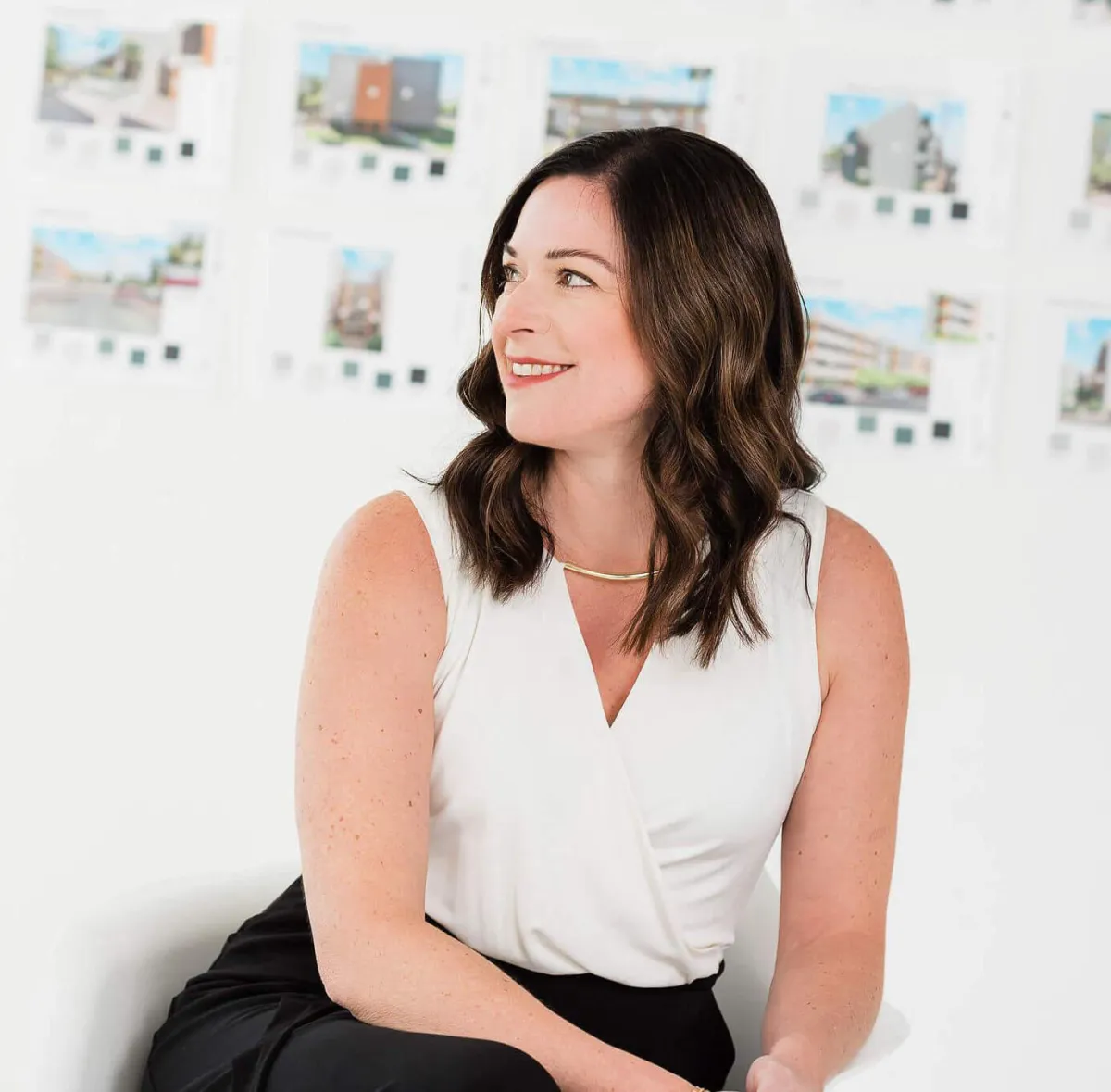
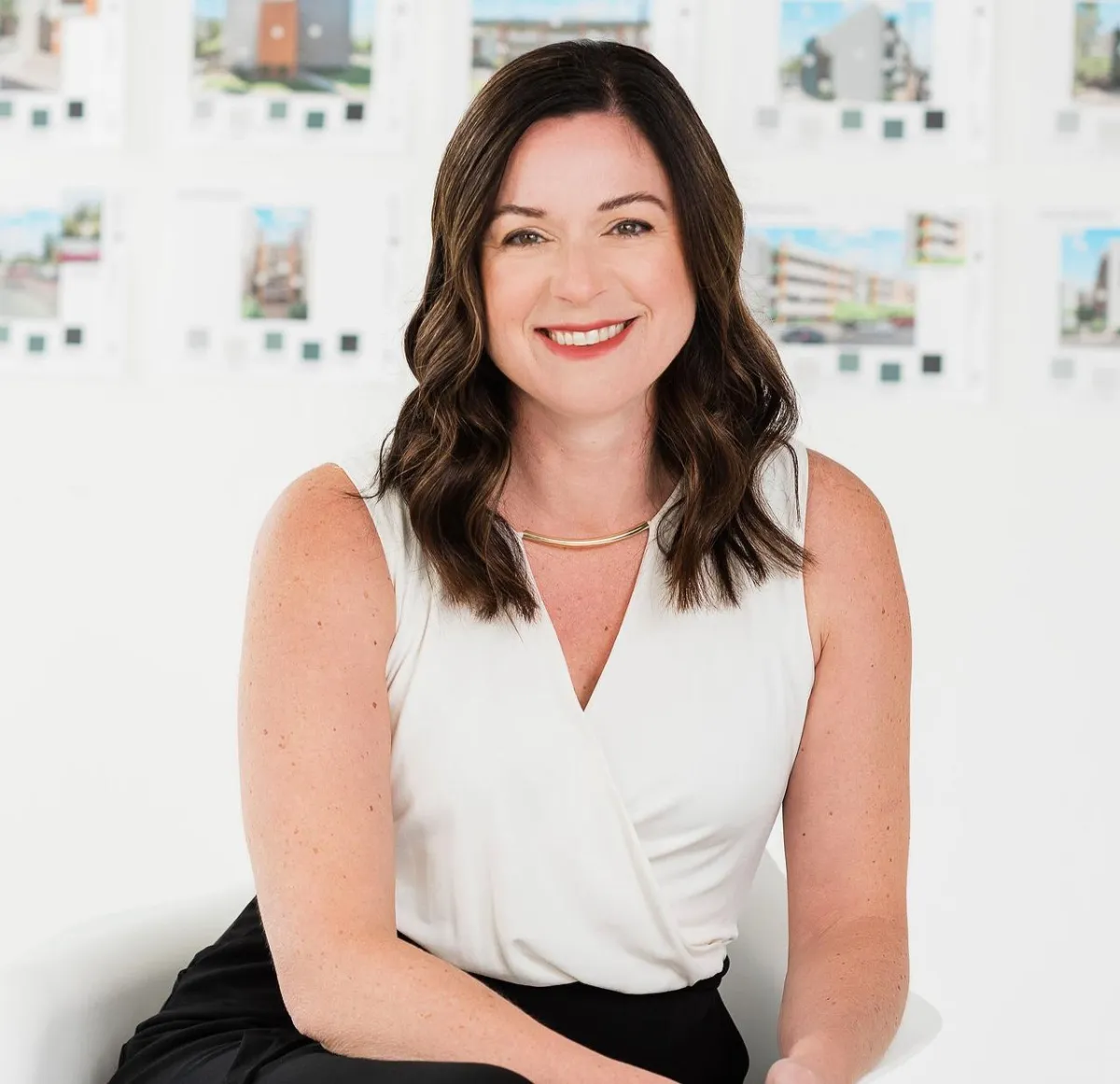
Explore
Successbydesign.coach- All Rights Reserved - Terms & Conditions - Cookie Policy
